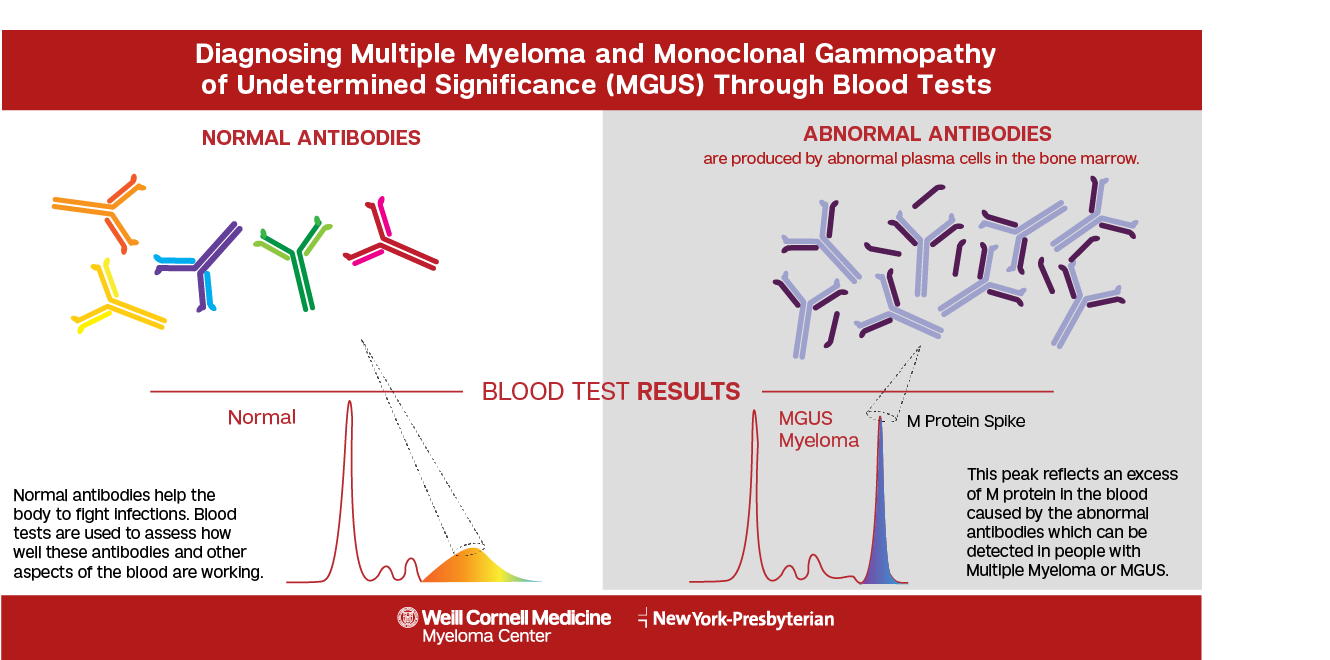Several types of proteins are present in all tissue throughout the body, including the blood. Antibodies are a type of protein responsible for fighting off infections and disease in the body. In healthy individuals, antibodies produced by plasma cells in the bone marrow help this process.
When the body produces abnormal antibodies, they are called monoclonal proteins, or M proteins. These proteins can also be referred to as an M-spike, monoclonal immunoglobulin, or paraprotein. The presence of M protein in the blood typically indicates the presence of multiple myeloma, or other plasma cell disorders such as amyloidosis or MGUS.
It’s currently unknown how these diseases form, but they typically begin with one abnormal plasma cell in the bone marrow that multiplies. These cancerous cells rapidly spread and crowd out the normal antibodies with M proteins, overtaking the healthy cells.
M proteins can be found in the blood or urine through routine testing for other conditions, or they can be specifically tested for if a doctor suspects a patient has multiple myeloma. A number of tests may be performed that lead to the identification of M proteins.


